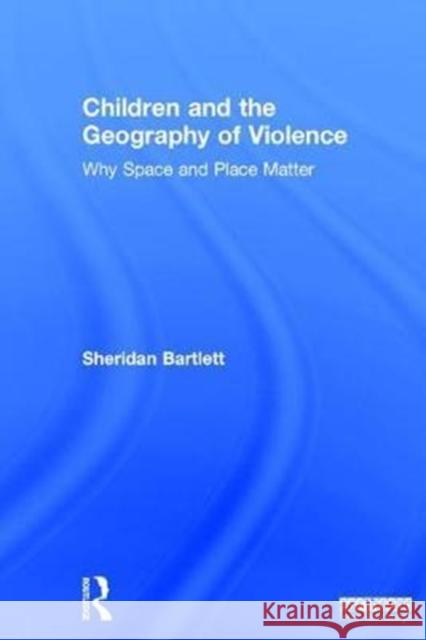Children and the Geography of Violence: Why Space and Place Matter » książka
Children and the Geography of Violence: Why Space and Place Matter
ISBN-13: 9781138040854 / Angielski / Twarda / 2017 / 170 str.
Children and the Geography of Violence: Why Space and Place Matter
ISBN-13: 9781138040854 / Angielski / Twarda / 2017 / 170 str.
(netto: 723,00 VAT: 5%)
Najniższa cena z 30 dni: 654,86
ok. 16-18 dni roboczych.
Darmowa dostawa!
Violence sabotages development, both children's development and the development of the communities and neighbourhoods they rely on. There is abundant evidence of the deep and lasting harm that can be done. Violence breaks bodies and minds and exerts an insidious influence at every level. The effects are immediate but can also linger, damaging health, trust and capability, traveling through generations. This book argues that it is impossible to understand the violence in young children's lives or to respond to it adequately without considering how embedded it is within their physical surroundings. The relations of power that are the context for violence within households, within communities and beyond are often expressed through control over space and the material conditions of life. This book links the abstract concept of structural violence to the stark reality of personal harm, drawing on evidence from a range of disciplines and from countries throughout the global South. It explores the dynamics of cramped, insecure housing, poor water and sanitation, neglected neighbourhoods, forced evictions, cities that segregate the rich and the poor, landscapes of conflict and disaster, and discusses their implications for young children. An alternative approach to child protection is proposed, anchored in the actions of organized communities negotiating to challenge inequities, mend their environments and achieve security. There is a fundamental synergy between building community and protecting children. These are not separate agendas. A place that works for children works better for everyone else as well.
This book will be essential reading for all those interested in young children in a global context, whether as child protection professionals, or those with a more general interest in children's rights issues or in cross cultural approaches to child development. It will also be of great interest to students and researchers of development studies, conflict studies, family studies, child development, public health and urban planning.











